Eastern Ghouta: Who is fighting in the besieged Syrian enclave and why is the civilian death toll so high?
Home to 400,000 people, the district has been besieged by forces loyal to Bashar al-Assad for years
Your support helps us to tell the story
From reproductive rights to climate change to Big Tech, The Independent is on the ground when the story is developing. Whether it's investigating the financials of Elon Musk's pro-Trump PAC or producing our latest documentary, 'The A Word', which shines a light on the American women fighting for reproductive rights, we know how important it is to parse out the facts from the messaging.
At such a critical moment in US history, we need reporters on the ground. Your donation allows us to keep sending journalists to speak to both sides of the story.
The Independent is trusted by Americans across the entire political spectrum. And unlike many other quality news outlets, we choose not to lock Americans out of our reporting and analysis with paywalls. We believe quality journalism should be available to everyone, paid for by those who can afford it.
Your support makes all the difference.Eastern Ghouta, the besieged rebel-held district of Syria’s capital, has been battered by rockets, bombs and artillery in some of the most intense bombardment seen during the country's eight-year civil war.
At least 27 people have been killed and more than 200 were injured on Wednesday, while at least 299 people have been killed in the last three days, the Britain-based Syrian Observatory for Human Rights war monitor said.
Another 13 bodies, including five children, were recovered from the rubble of houses destroyed on Tuesday in the villages of Arbin and Saqba, the Observatory reported.
The staggering casualty toll has overwhelmed paramedics and doctors over the last few days.
Where is Eastern Ghouta?
Eastern Ghouta is a densely populated agricultural district on the outskirts of Damascus.
Home to 400,000 people, it has been besieged by the regime of Bashar al-Assad since 2013.
Syrian Civil Defence workers, also known as the White Helmets, said government forces targeted the town with air strikes, artillery fire, and barrel bombs, which are crude, explosives-filled oil drums dropped from helicopters at high altitudes.
Who is fighting in Eastern Ghouta?
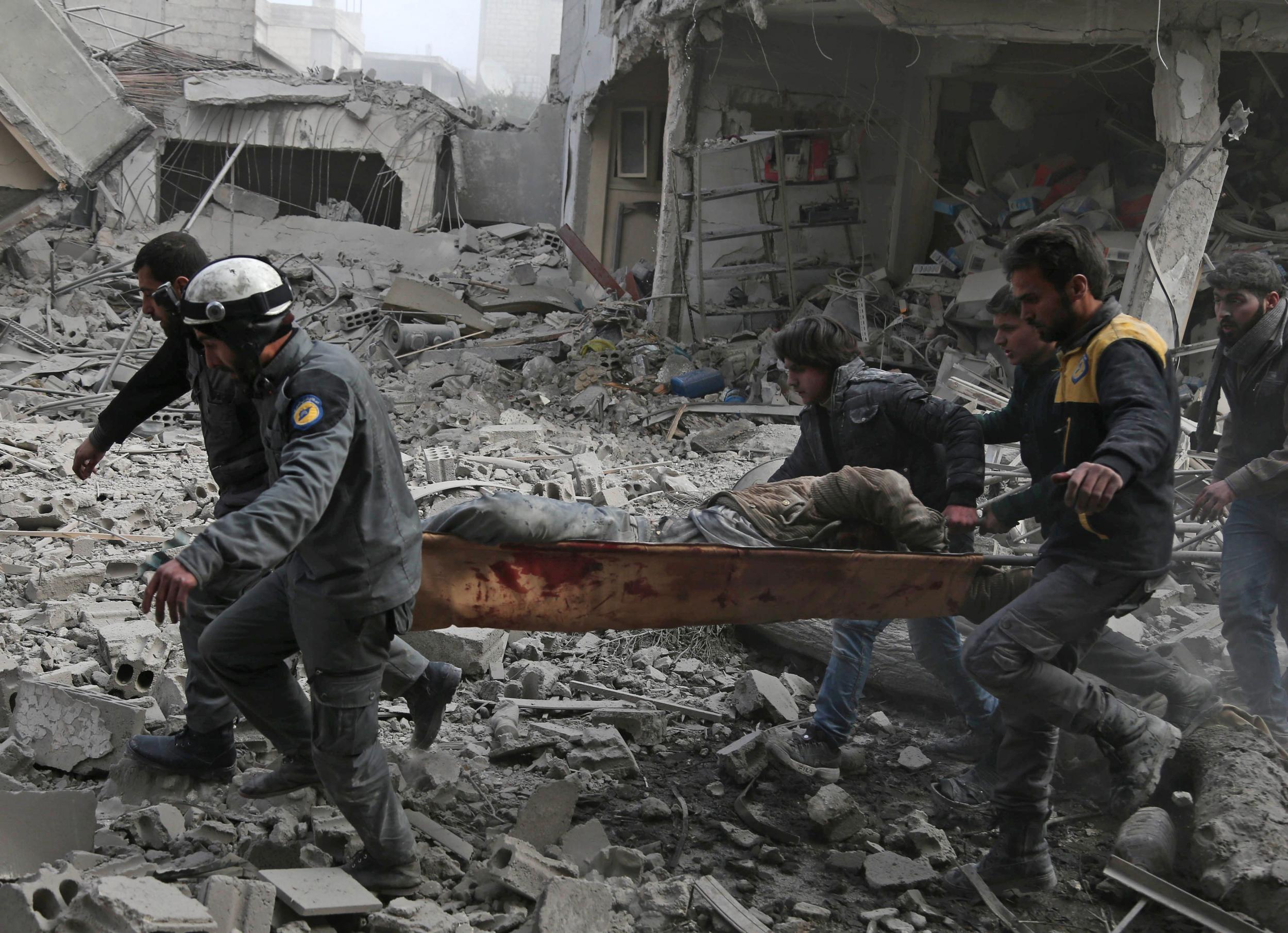
Eastern Ghouta is the last major area near the Syrian capital which is still under rebel control.
It is one of a number of “de-escalation zones” under a diplomatic ceasefire initiative agreed by Syria’s allies Russia and Iran with Turkey, which has backed the rebels.
However, a rebel group formerly affiliated with al-Qaeda is not included in the truce and has a small presence there.
Syrian government forces and Russian aircraft have shown no signs of letting up their indiscriminate aerial and artillery assault since they stepped up strikes late on Sunday.
Pro-government forces have been amassing on the perimeter of the rebel-held region since the weekend, for what is anticipated to be a final ground offensive.
Why is the death toll in Eastern Ghouta so high?
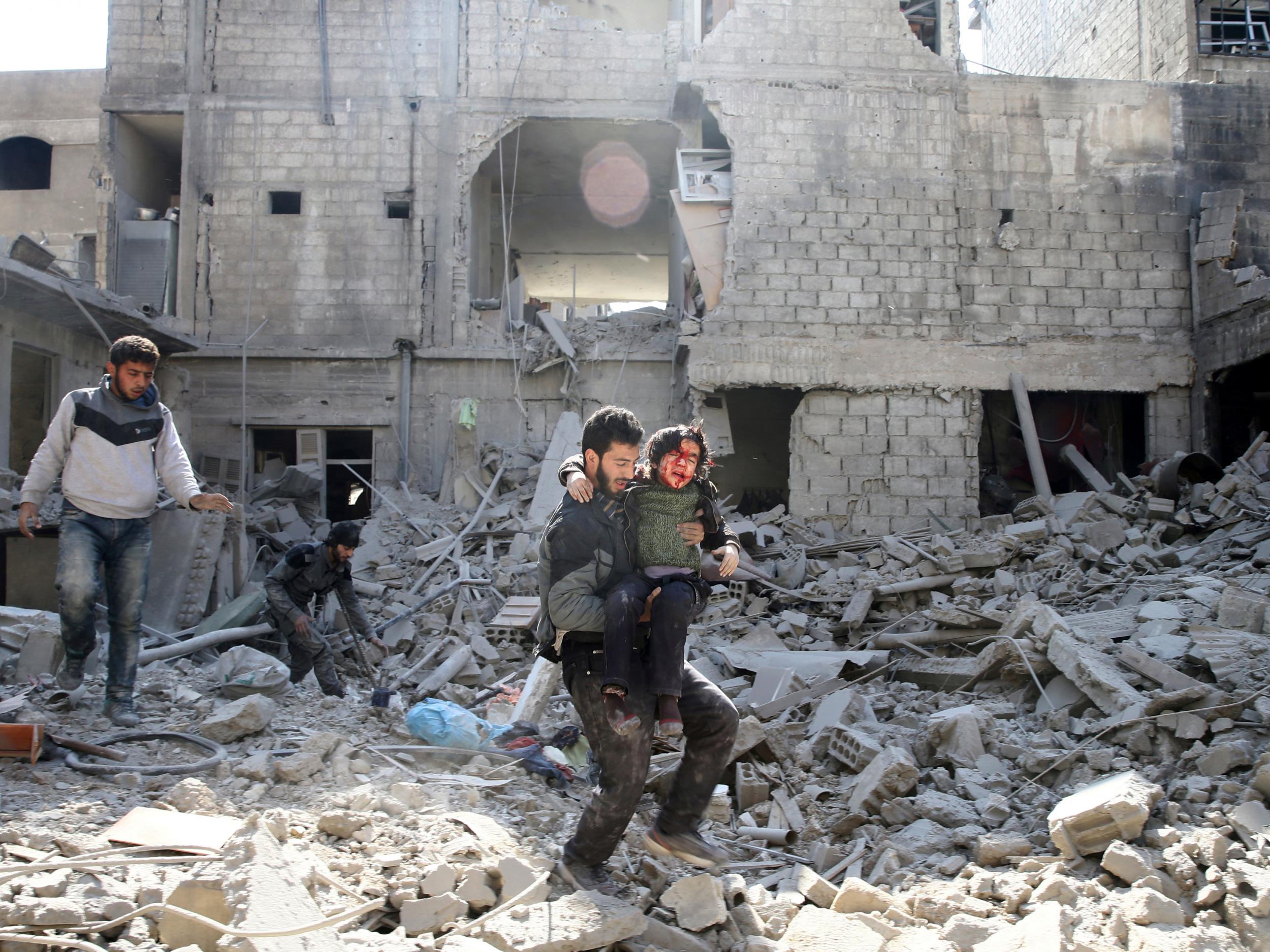
Pro-government forces have fired hundreds of rockets and dropped barrel bombs from helicopters on the district’s towns and villages.
The Syrian government and its ally Russia, which has backed Assad with air power since 2015, say they do not target civilians. They also deny dropping indiscriminate barrel bombs from helicopters, whose use has been condemned by the United Nations.
The Syrian Observatory for Human Rights said many of the planes over Ghouta appear to be Russian. Syrians say they can distinguish between Russian and Syrian planes because the Russian aircraft fly higher.
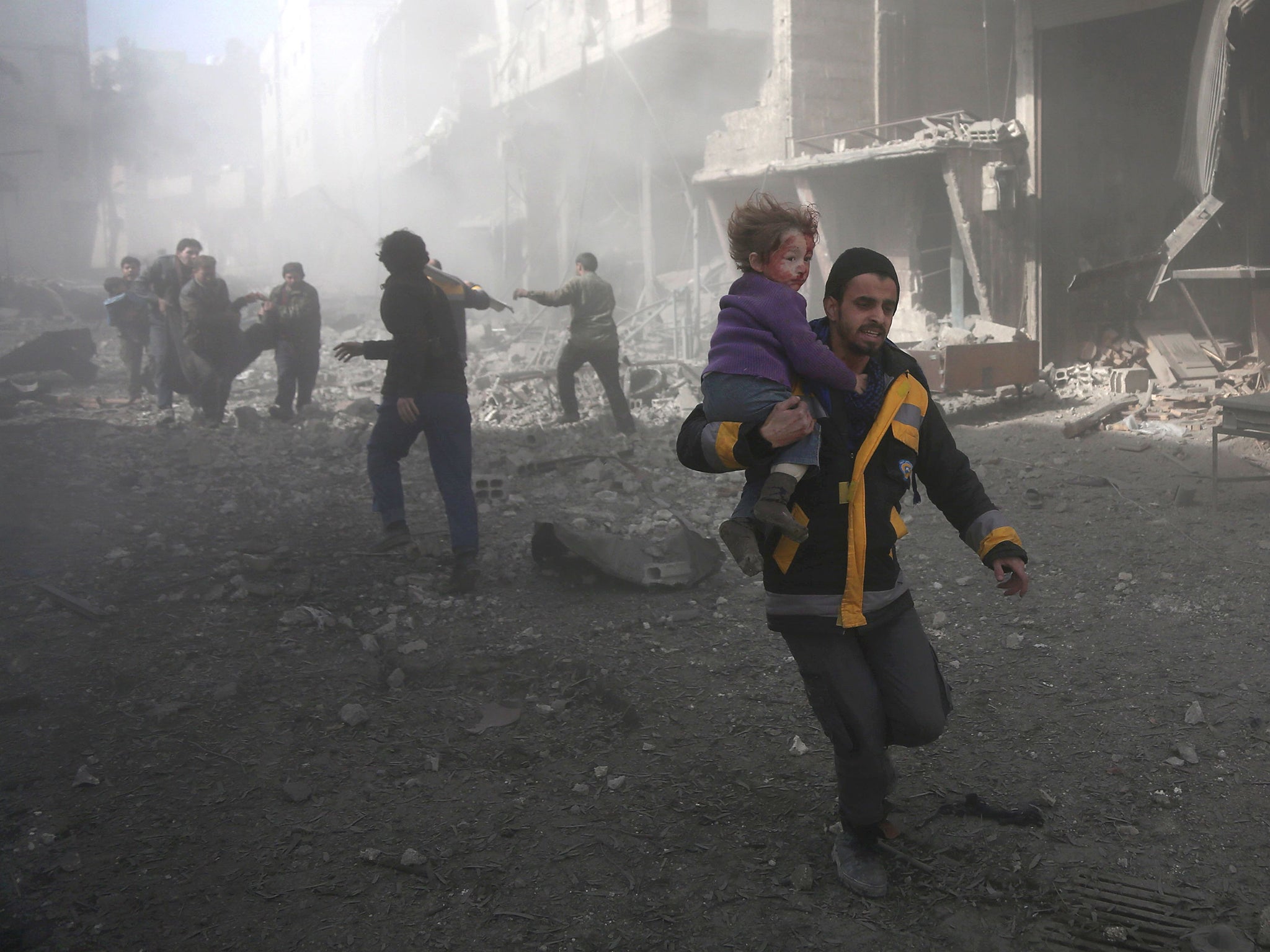
Dmitry Peskov, a spokesman for the Kremlin, described accusations Russia bears some of the blame for civilian deaths in Eastern Ghouta as ”groundless”.
Rebels have also been firing mortars on the districts of Damascus near Eastern Ghouta, wounding four people on Wednesday, state media reported. Rebel mortars killed at least six people on Tuesday.
“Today, residential areas, Damascus hotels, as well as Russia’s Centre for Syrian Reconciliation, received massive bombardment by illegal armed groups from eastern Ghouta,” Russia’s Defence Ministry said.
Conditions in Eastern Ghouta had increasingly alarmed aid agencies even before the latest assault, as shortages of food, medicine and other basic necessities caused suffering and illness.
What has the international reaction been to the situation in Eastern Ghouta?
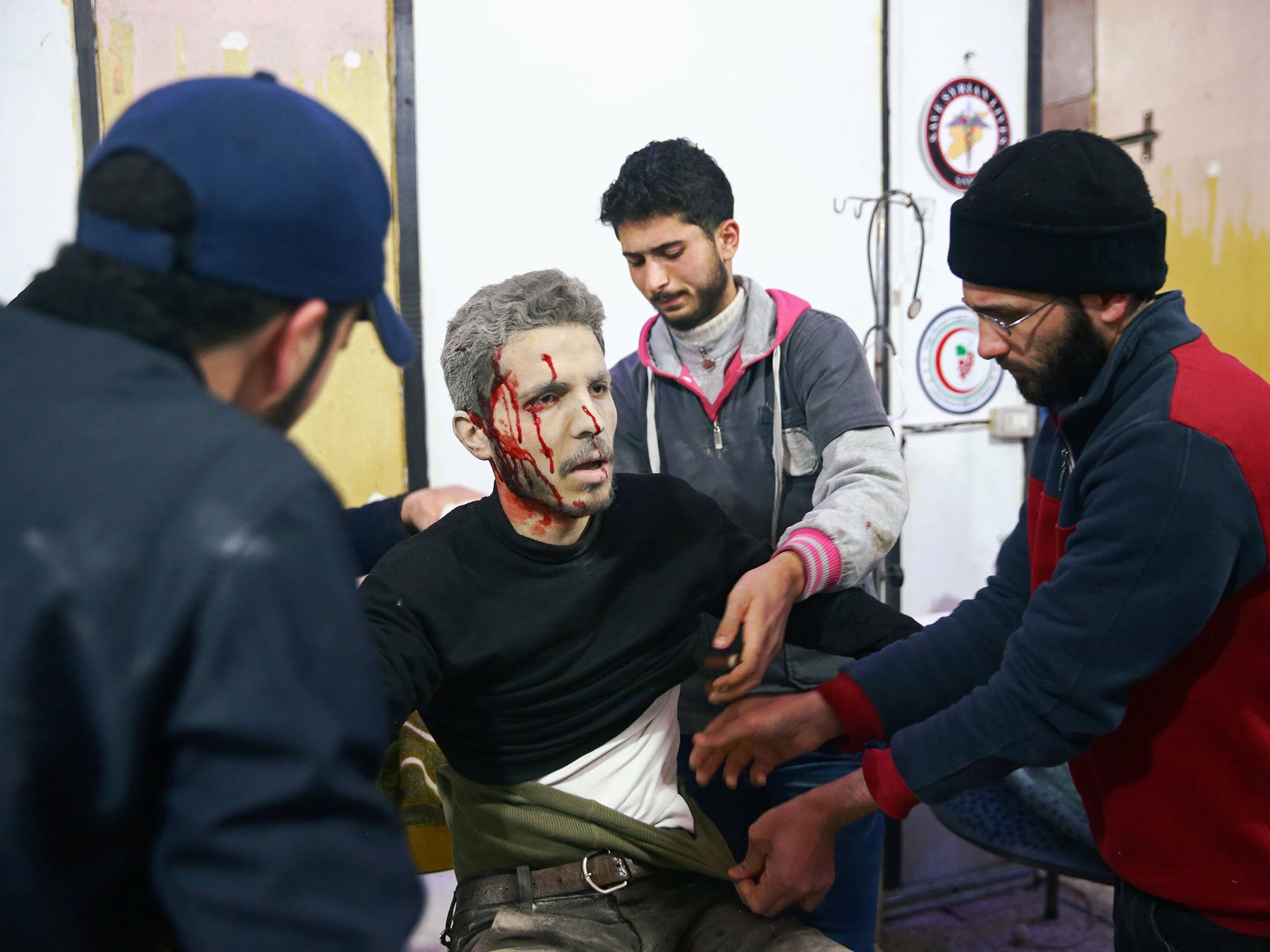
The high numbers of civilian casualties has drawn global criticism.
The United Nations expressed its outrage by releasing a blank statement, because, it said, “no words will do justice to the children killed, their mothers, their fathers and their loved ones”.
The symbolic message from Unicef’s regional director, Geert Cappalaere, contained ten lines of quotation marks which had been left empty to indicate the missing text.
In a footnote, it said: “We no longer have the words to describe children’s suffering and our outrage. Do those inflicting the suffering still have words to justify their barbaric acts?”
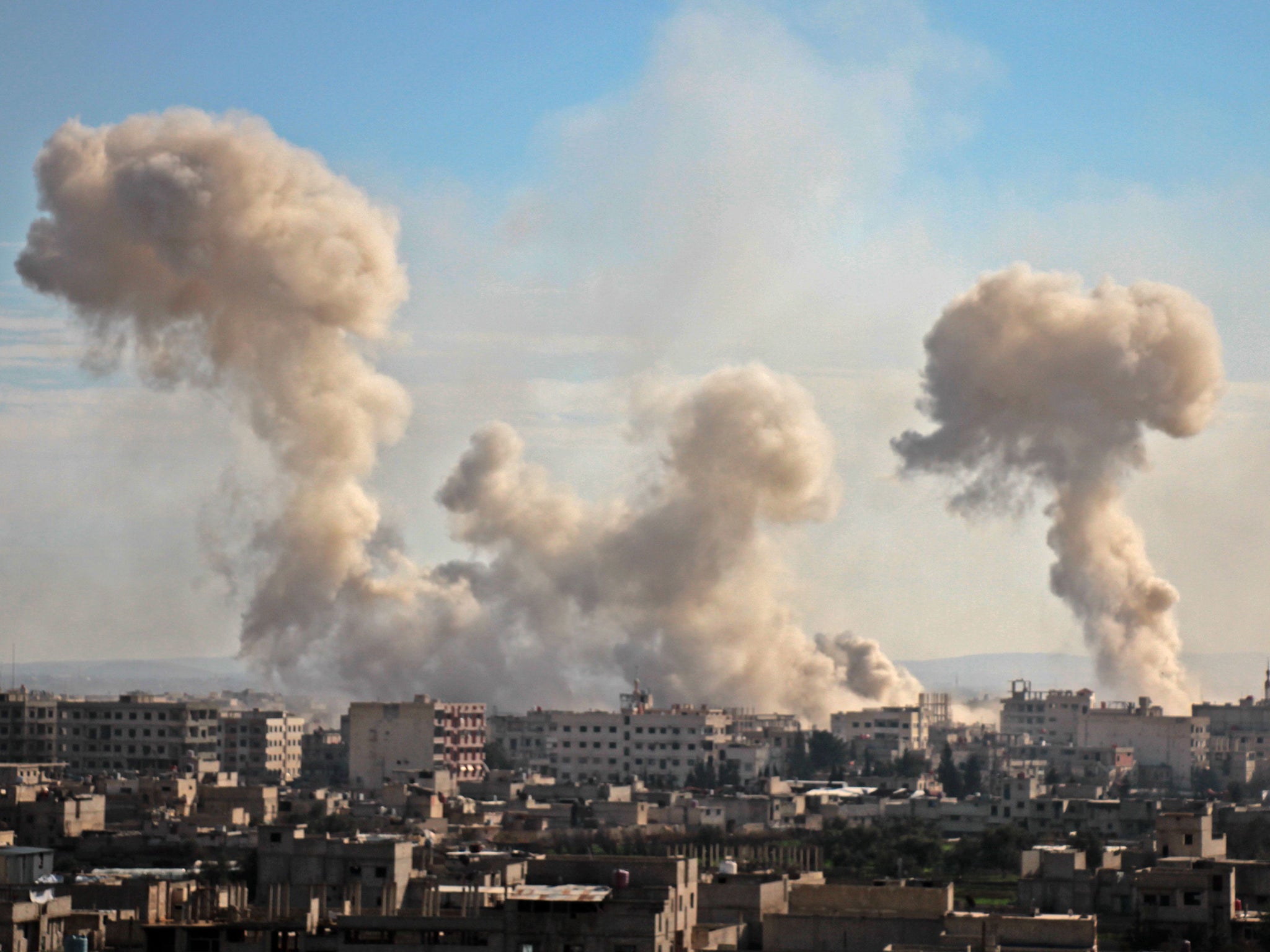
The International Committee of the Red Cross called for restraint in Syria and access to the wounded after the deadly escalation in fighting in and around Damascus.
In a statement, it said the medical personnel in eastern Ghouta were unable to cope with the high number of wounded and the area did not have enough medicines and supplies.
Marianne Gasser, ICRC’s head of delegation in Syria, said the “wounded victims are dying only because they cannot be treated in time.”
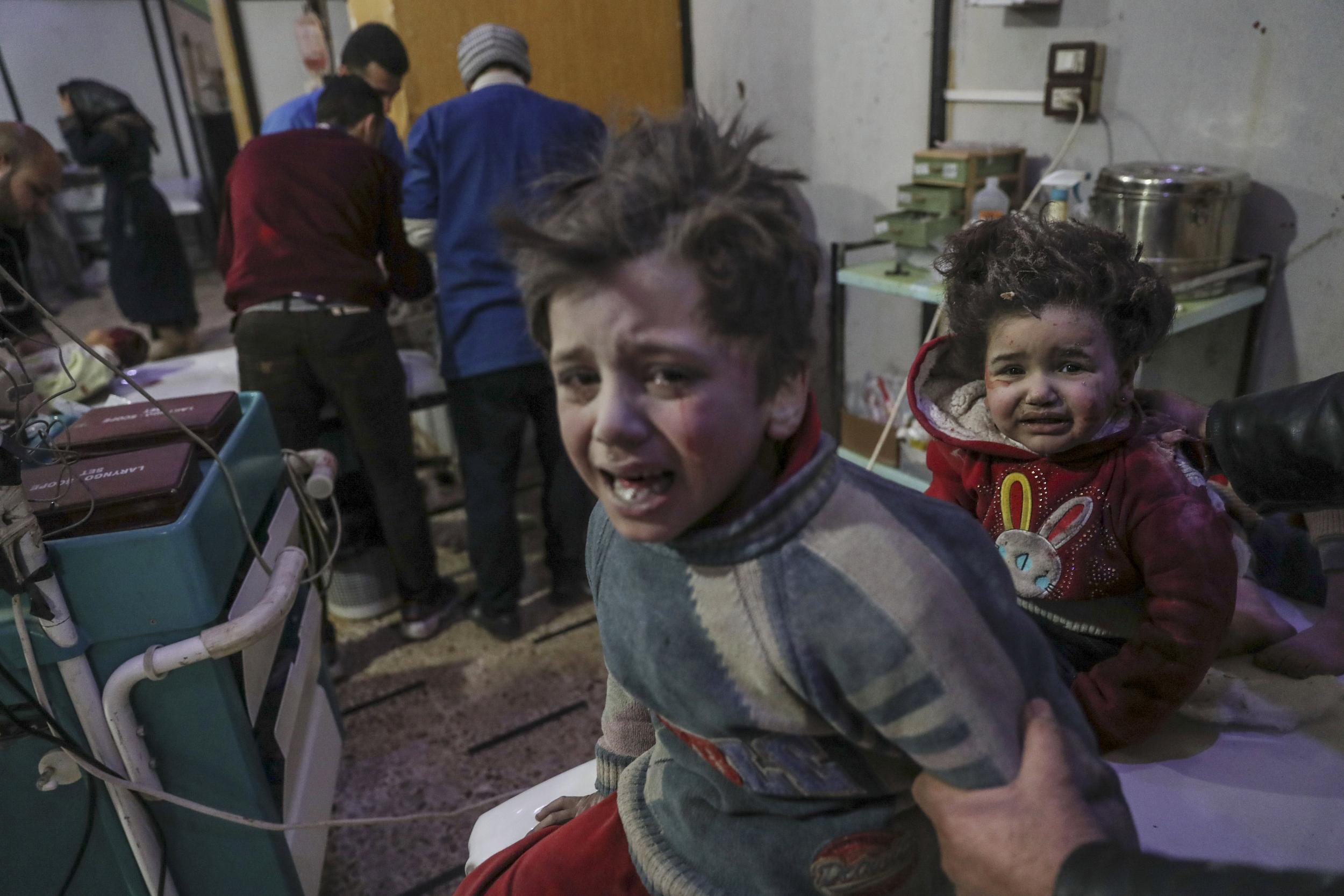
France's President, Emmanuel Macron, called for a humanitarian truce to allow for the evacuation of civilians.
The attacks “deliberately target inhabited areas and civilian infrastructure, including medical ones. They constitute a grave violation of international humanitarian law,” France's foreign ministry said in a statement.
“These acts engage the responsibility of the Syrian regime, but also that of Russia and Iran, which are its main backers and who, in the framework of the Astana agreements, have vouched for a ceasefire that is supposed to apply to Ghouta.”
A spokeswoman for the United States State Department, Heather Nauert, said the US is "deeply concerned" about the Syrian government's escalation of the siege. She went on to denounce what she called the "siege and starve tactics" of regime forces.
The UN Secretary General has called for an immediate suspension of "all war activities" in Eastern Ghouta, where he said 400,000 people are living "in hell on earth."
Antonio Guterres said a suspension of fighting must allow for humanitarian aid to reach all in need and the evacuation of some 700 people needing urgent medical treatment.
Mr Guterres told the UN Security Council on Wednesday "this is a human tragedy that is unfolding in front of our eyes and I don't think we can let things go on in this horrendous way".
Additional reporting by agencies

Join our commenting forum
Join thought-provoking conversations, follow other Independent readers and see their replies
Comments